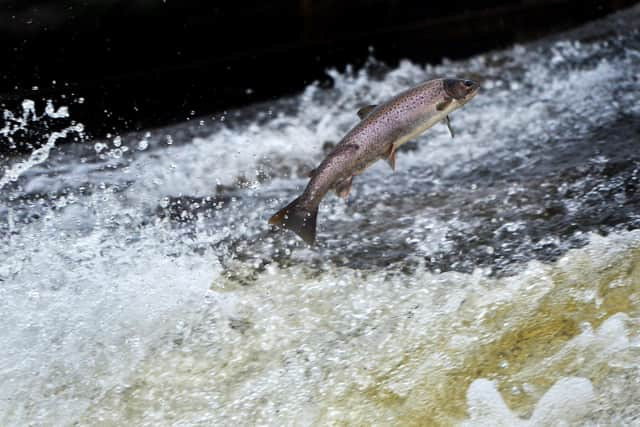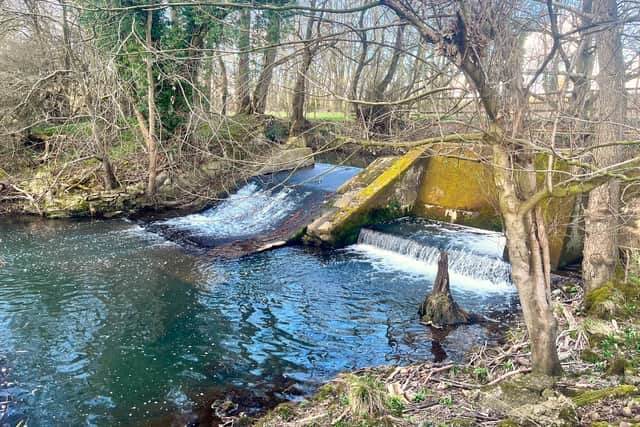Conservationists plan to bring threatened species of fish back to Derbyshire for the first time in more than a century
and live on Freeview channel 276
Announcing their ambitions to mark World Water Day, on March 22, Derbyshire Wildlife Trust (DWT) and its partners have begun work to reintroduce Atlantic salmon in the River Ecclesbourne, which flows from Wirksworth down to meet the Derwent just east of Duffield.
According to a study by the Wild Trout Trust, the river has a large amount of potential spawning habitats for the priority conservation species, and others found in the Derwent catchment, but their migration to and from the ocean is currently prevented by the presence of manmade structures.
Advertisement
Hide AdAdvertisement
Hide AdThe new project will bypass the weir at the site of the former Postern Mill in Turnditch, and restore the river to its original course before it was diverted for milling in the 18th century, opening up more than 28 kilometres of waterways.


Jennifer Kril, living rivers officer at DWT, said: “We are incredibly excited to be starting this project to improve the Ecclesbourne River’s natural habitats, provide passage for a whole host of fish species, and improve its overall health.
“It also offers great opportunities for local schools and communities to get involved, learn more about their water environment and make a positive difference to wildlife.”
She added: “Getting this project to the start line has been a huge team effort and we are delighted to be working with our partners to protect this watercourse as part of our mission for nature's recovery.”
Advertisement
Hide AdAdvertisement
Hide AdAs well as salmon – classified as ‘vulnerable’ in Europe – work to open up and depollute the river should benefit critically endangered eels, plus grayling, trout, lamprey, minnow, stone loach, and bullhead.


Tim Jacklin, deputy director of the Wild Trout Trust, said: “This is a great example of the type of project required to save our threatened migratory fish. We are delighted to be working with our partners on this project which builds on the removal of the Snake Lane weir at Duffield in 2022.
“Completion of the project at Postern Mill will open up the whole River Ecclesbourne, allowing salmon once again to return from the North Atlantic all the way to Wirksworth – and back again.”The excavation and construction of the new channel is due to start in the autumn, accompanied by work to control invasive Himalayan Balsam along six kilometres of riverbank.
Introduced here in 1839, the plant is now an invasive weed which prevents native species from growing and contributes to increased bank erosion during winter months.
Advertisement
Hide AdAdvertisement
Hide AdThe two conservation charities are being supported in the project by the Chatsworth Estate and Nestlé Waters UK.
Hayley Lloyd House, head of corporate affairs and sustainability at Nestlé, said: “We are looking for ways to play an active role in supporting the regeneration of local water cycles, this includes the Derwent Catchment, where we bottle at source Buxton natural mineral water and Nestlé Pure Life spring water.
“We anticipate the impact will be long lasting, enhancing the health of the river, its biodiversity, and provide benefits for the local community. It's one example of more than 100 projects Nestlé Waters are implementing around the world to help create a positive water impact where we operate.”